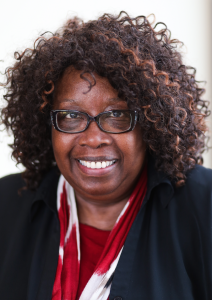Despite a nationwide emphasis on increasing the number of students entering science, technology, engineering and math fields, many leave the disciplines within their first two years. Now, a group of institutions led by the University of Georgia will develop a new phase of developing a national network to support integration of research experiences into undergraduate life science lab courses.


The network, called “Course-based Undergraduate Research Experiences Network” or CUREnet, is designed to broaden the availability of research opportunities for students across the U.S.
Jackson State University joins a large network of institutions, which includes the University of Georgia, other institutions in University System of Georgia, and a group of Historically Back Colleges and Universities throughout several states in the southeast and mid-Atlantic, to reinvent their life-science lab courses to engage undergraduates in research.
At JSU, Dr. Timothy Turner, co-principal investigator and chair of the Department of Biology, and Dr. Gloria Miller, co-principal investigator and instructor of biology lead the project.
“This project is very timely because it affords us the opportunity to ensure that students at every level get the opportunity to obtain research experience. These are critical skills that they would need in their future careers,” Turner said.
The focus on introducing students to research – especially for students who are the first in their families to attend college or whose families aren’t scientists or researchers – is important for building success in the laboratory and after graduation.
“I am eager to get started on this project because the research experience they will gain in the biology lab courses will help them to choose research-related careers,” Dr. Gloria Miller said.
Erin Dolan is lead principal investigator on the grant funded by the National Science Foundation. She’s also a Georgia Athletic Association Professor of Innovative Science Education in the Franklin College of Arts and Sciences department of biochemistry and molecular biology at the University of Georgia.
“The idea of integrating research experiences into lab courses, where students are tackling a problem related to a faculty member’s ongoing research, is they try out research as they learn,” Dolan said. “And, if research appeals to them, they have a faculty member or a grad student or a postdoc working with the course who can help them find additional internships or other opportunities to do research that helps them make progress in their education and career path.”
By learning lab techniques in the context of solving a real research problem, students can understand how learning in a lecture class applies to the real world. Typically, students in lab courses follow a set protocol to find a well-understood phenomenon, but students in research settings have the potential to make discoveries and see how science is actually practiced.
JSU is excited to be a part of this network and eager to engage more students in research. The experience they gain solving research problems can help with their retention and graduation, and their career choice. During the summer, JSU will host a 3-day mobile institute in which faculty will learn about CURE instruction and work to design their own introductory-level CUREs.
Steering committee institutions, along with JSU, in the network are Alabama State University, Arizona State University, Bowie State University, Carleton College and Hampton University. CUREnet also will partner with a national network of community colleges focused on supporting undergraduate research.






